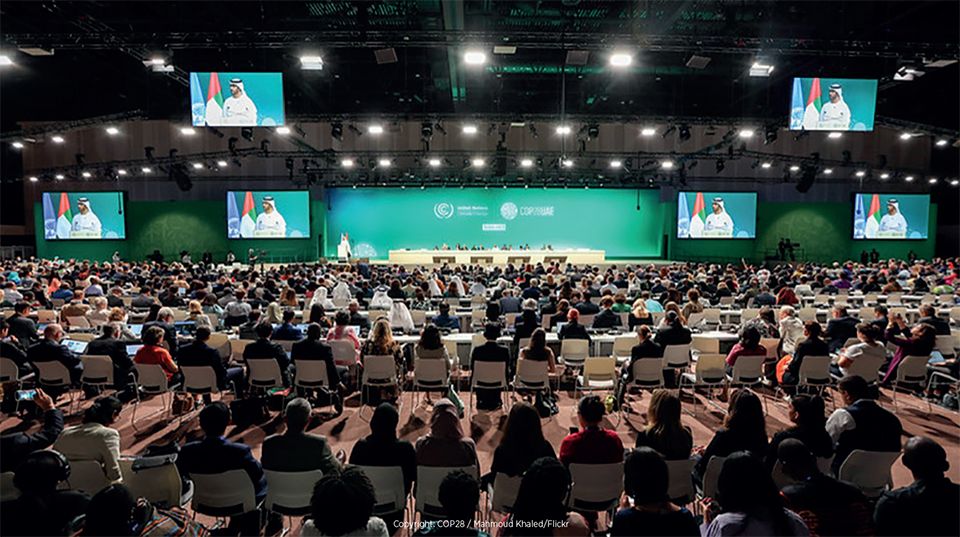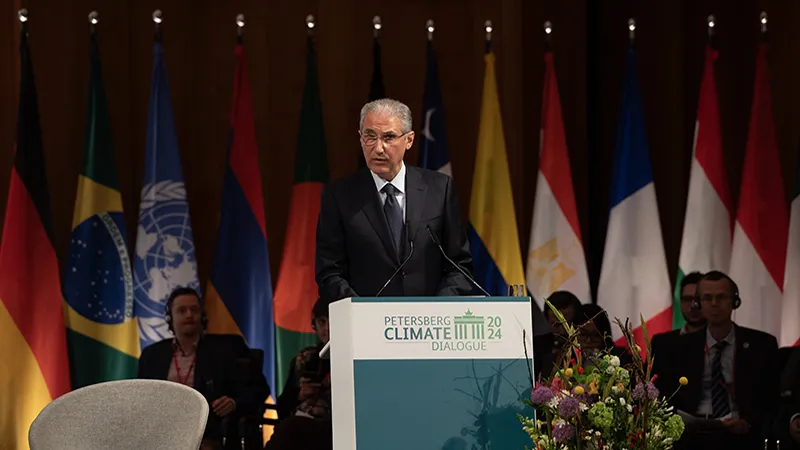A draft text for matters relating to the first-ever global stocktake of the world’s progress on climate action and support has been released at COP28, with concerns over a “narrowing window” to take the action needed to hit the Paris Agreement’s target of limiting global warming to 1.5°C above pre-industrial levels.
As part of the text, the global stocktake notes that the Paris Agreement has “driven near-universal climate action by setting goals and sending signals to the world regarding the urgency of responding to the climate crisis” while underlining that, despite overall progress on mitigation, adaptation and means of implementation, parties are “not collectively on track to achieve the goals of the Paris Agreement”.
However, despite those concerns, commentators have noted the draft document leaves many possible paths open on key debates such as fossil fuels, as well as lacks detail on nature-based solutions, deforestation, land use and agriculture.
Point 20, for example, calls on parties to “rapidly scale the deployment of clean power generation and energy efficiency measures”, but still references a ‘phase-down’ of fossil fuels, including unabated coal power. Meanwhile, point 22 merely emphasises “the importance of protecting, conserving and restoring nature and ecosystems to achieve the Paris Agreement temperature goal”.
Divisions over fossil fuel references will be a key part of negotiations over the next two weeks.
See also: COP28 wishlist: End fossil fuels, protect our oceans, and fund a renewable future
Responding to the first draft of the global stocktake, Shirley Matheson, global NDC enhancement coordinator at the WWF, said the document must “trigger the climate action needed to limit global warming to 1.5C”.
“With this draft, the UN secretariat has given countries something to work with, but there is a long way to go before we can be sure of a transformative outcome,” warns Matheson, highlighting the fact the current draft is missing some key science-based policies recommended by the Intergovernmental Panel on Climate Change (IPCC), and could lead to only a weak agreement on fossil fuels.
“Next drafts must include a collective goal for 60% emissions reduction by 2035 to guide the next cycle of national climate plans. Nature is a climate ally and that also needs to be fully recognised in this text, with guidance for the conservation of 30-50% of land, ocean and freshwater.”
Key stakeholder dialogues leading to the global stocktake
Prior to the start of COP28, the conference’s president, Sultan Al Jaber, and Fatih Birol, executive director of the International Energy Agency, took part in technical dialogues with various stakeholders on three key considerations: a “step-change” increase this decade in energy efficiency and renewables deployment alongside a phase-down in fossil fuel supply and demand; a significant scaling of climate finance for both developed and developing countries; and ensuring a “just and orderly” energy transition.
The fifth and final dialogue will be held at the World Climate Action Summit at COP28.
“Through these high-level dialogues, we have defined critical gaps and crucial opportunities in climate action to build the most comprehensive set of decarbonisation initiatives ever,” said Al Jaber.
“The summary of the dialogues sets the tone for countries to decide an ambitious response to the global stocktake, setting us on a path to an energy system consistent with keeping 1.5°C degrees within reach.”
Update
Shannon Lancaster, fund manager and analyst at Ravenscroft Group, said that “the jury is out” on how likely the process is to actually enforce obligations by any country under the Paris Agreement.
“The Global Stocktake at COP28 has the potential to result in bold political commitments that can drive breakthrough solutions across systems and sectors. However, with a lack of political will, the Stocktake risks becoming an information-sharing exercise coupled with broad, unactionable recommendations.
“It would be positive to see the strengthening of national climate plans and details on how these will be achieved, but currently it is unknown whether countries will have to justify where they have fallen short of goals, or if they will continue to set targets without giving much thought to the actions required. This stage is critical, as it will determine how countries respond politically to the gaps and opportunities identified in the technical phase.”
Additionally, Iceberg Data Lab (IDL) has announced the launch of a brand-new dataset which monitors and examines the performance of sovereign states against the Paris Agreement commitments, using advanced modelling capabilities to examine the carbon intensity of each economy, including Scope 3 emissions.
Matthieu Maurin, founder and CEO of Iceberg Data Lab (IDL), said: “The global stocktake is a key part of holding every country accountable in their progress towards the Paris Agreement targets. This is why we’ve worked hard to create IDL’s new Sovereign States dataset in time for COP28, which clearly demonstrates that nations are not cutting emissions fast enough, and that it is crucial for Scope 3 to be more widely considered. We hope that this encourages governments to scale up their efforts immediately as climate policies are developed, debated, and implemented at this week’s event.”





